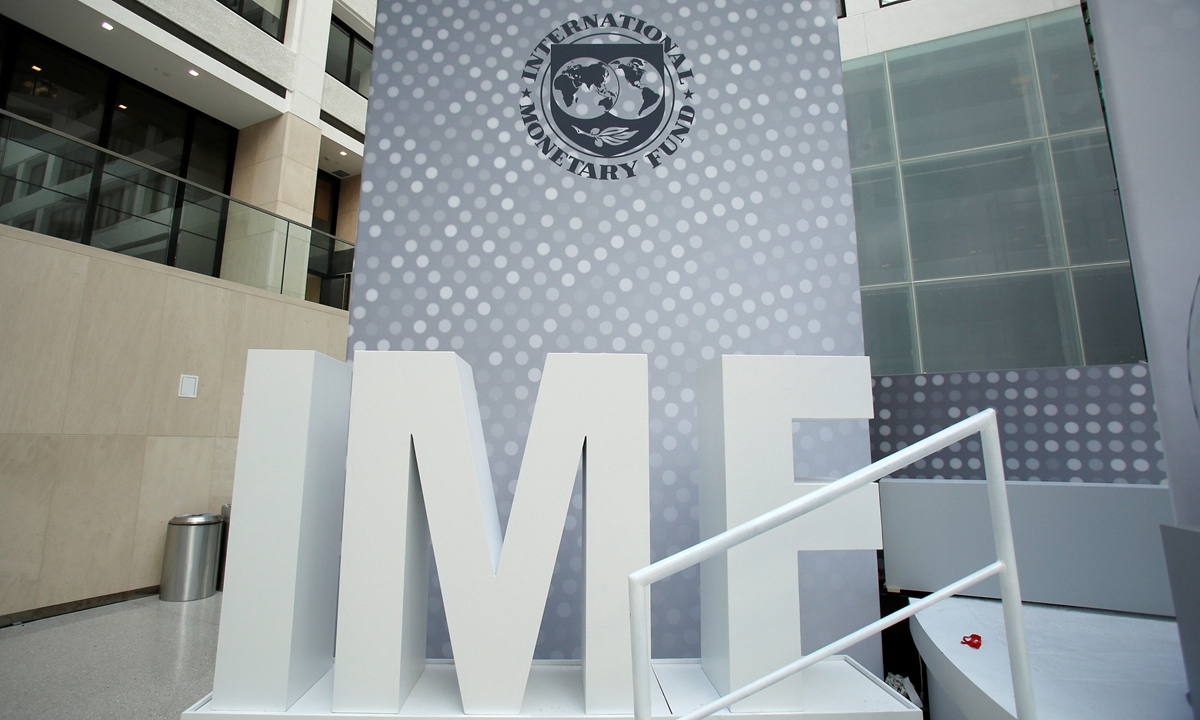
File Photo: VCG
Central bankers and finance ministers from many countries around the world are attending the 2022 spring meetings of the IMF and the World Bank and G20 meetings in Washington this week - all aimed at addressing risks and uncertainties facing the global economy. But the US appears to have a completely different agenda in mind - one that runs counter to the imperative goals of the meetings and the fundamental interests of the global community.At the IMF-World Bank meetings, US Treasury Secretary Janet Yellen intends to call on her counterparts to increase economic pressure on Russia, according to some media reports. Moreover, Yellen plans to skip some sessions of the G20 finance meeting in protest against Russia, Reuters reported on Tuesday, citing two senior US Treasury officials. Clearly, the US is seeking to hijack the multilateral meetings to push its own geopolitical agenda against Russia.
Since the outbreak of the Russia-Ukraine conflict, it is not uncommon to see Washington exploit various multilateral platforms to force other countries to take sides, with the aim of overwhelming Russia and ultimately maintaining its hegemony. So it's not at all surprising that US officials are trying to use this week's meetings to coerce other countries to join its sanctions against Russia.
But multilateral cooperation mechanisms should by no means become a geopolitical tool for the US and its allies to isolate other countries and exercise their hegemonism. The US and its allies have no right to put their own agenda above that of the international community and to undermine global cooperation to tackle the enormous downward pressure facing the global economy.
And the downward pressure is mounting at an extremely dangerous pace. At present, with rising instability and uncertainty from the COVID-19 pandemic and various geopolitical headwinds, the world economic recovery is facing great difficulties. Meanwhile, the Russia-Ukraine conflict and the reckless US-led Western sanctions against Russia have exacerbated global inflation by jacking up prices of energy and bulk commodities, particularly hurting the interests of emerging economies that are vulnerable to high inflation.
Right before the meetings kicked off on Monday, the World Bank reduced its global growth forecast for 2022 to 3.2 percent from 4.1 percent, citing various factors, including the Russia-Ukraine conflict. Meanwhile, many emerging economies are facing great risks of debt default.
As emerging economies are bearing the brunt of global economic and geopolitical turmoil, it is the responsibility of multilateral economic cooperation mechanisms like the World Bank, IMF and G20 to step up and offer a helping hand to emerging economies, instead of dancing to the US' tune and becoming a geopolitical tool for the US to sanction Russia.
Under the current global circumstances, various countries' participation in jointly addressing global economic risks under the coordination of multilateral financial cooperation mechanism is of paramount importance. If the world's major multilateral cooperation channels are all carried away by the US' Cold War mentality, it would only point to the ultimate downfall of global multilateralism that underpins global peace and economic development.
That is why it is essential for all parties to reject the US' attempt to bring its toxic geopolitics into this week's meetings. Today's efforts to defy the US' hegemony may determine the direction of the international financial order and whether major risks of global consequences can be averted.
